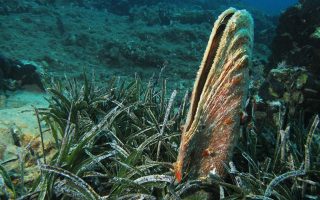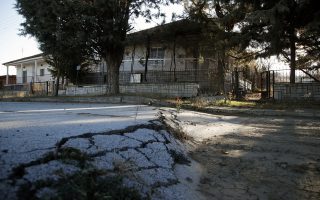Improving Greece’s environmental performance

The European elections are almost upon us. In the runup to May 23-26, one of the biggest issues people have been discussing and indeed mobilizing around, is how we protect our climate and our environment.
Protecting the environment is something that Europeans think the EU is doing well, should do more of and should have more powers to do so.
People understand that laws mean little unless implemented – fully and fairly.
Recently the European Commission adopted the second Environment Implementation Review – the EIR. This tool is intended to enforce that fullness and that fairness.
It was the outcome of two years’ work, the end result of a cycle of analysis, dialogue and collaboration. A concise, objective look at what is working in environment policy and what still needs to be done.
Across the EU, politicians, businesses and civil society are supporting our call for greater sustainability. We have made good progress toward a more circular economy where what we produce can be reused, repaired or recycled. When I became a commissioner four years ago, I had the driving ambition that an ambitious plastics strategy and a ban on single-use plastics would be feasible, but I was skeptical that we could do it as quickly as we have. I should have had more confidence in our own abilities and in your support.
But not all our policies are performing as well as they could, and that’s why we need this review. It lays the ground for better implementation, in close partnership with the member-states.
We have also been putting member-states’ authorities in touch with each other, with concrete results. There were 19 peer-learning projects carried out last year, with all member-states involved and this year there will be at least 20 more.
Each country has specific achievements and special challenges: 28 country reports show where progress has been good and where there is room for improvement. The reports include specific priority actions for each country, including Greece.
Most of the actions are in areas like air and water quality, waste management and nature protection. Areas that mean the most to you.
Among the headline findings, waste prevention remains an important challenge for all member-states. Nine countries are on track and five have already reached the 50 percent recycling by 2020 targets, but 14, including Greece, are at risk of missing them. Greece has, however, made some progress on waste management, as its strategic framework for waste is now in place and national and regional waste management plans have been adopted. The number of illegal landfills that are still operational or in need of rehabilitation has decreased over the years. However, the remaining landfills will be very difficult to close unless new facilities are built. Greece needs to make a major effort to put in place an adequate network of facilities that would effectively manage all the hazardous waste produced in the country.
On nature protection, most member-states need to speed up their efforts to complete the Natura 2000 network and manage it properly. Greece has significantly extended its marine Natura 2000 network recently. It has adopted legislation to put management bodies in place for all its Natura 2000 sites and has started to implement a comprehensive integrated project for nature. These positive steps should be followed up with concrete action on the ground to raise awareness and create the right incentives for sustainable investments.
Two-thirds of our member-states are still having problems with urban wastewater treatment. More investment is essential and the review shows how EU funds are there to back up implementation efforts. This also applies to water quality in general. In Greece there have been some positive steps, such as the systematic assessment and strategic re-organization of the country’s investment needs. These efforts should lead to the necessary infrastructure being quickly put in place.
The EIR also looks at governance and asks if environmental authorities have the resources and skills they need, and it looks at how environment policy is integrated into other sectoral policies such as agriculture, transport, etc.
This is the second time we’ve done this kind of review and this time we have been more ambitious, covering climate change, industrial emissions and chemicals for the first time.
We did this for a very simple reason: these implementation gaps are harming peoples’ health. They are also hampering sustainable economic development. We know this is true because we also have a new study that puts a price on these gaps.
It shows that full implementation of EU environmental legislation could save the EU economy around 55 billion euros every year. That’s the health costs and direct costs to the environment, but it is about much more than money. Each year more than 400,000 people die prematurely because of air pollution.
That is what’s at stake with environment policy, and that’s why we need tools like this review.
Publishing the results is one more step in an ongoing cycle. We pursue these exchanges, we integrate the feedback, and we will shortly be devoting a Europe-wide conference to environmental implementation: EU Green Week 2019, from May 13 to 17.
The Country Report for Greece is here.
Karmenu Vella is the European commissioner for environment, maritime affairs and fisheries.





